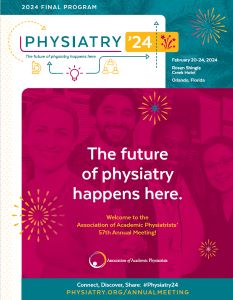Musculoskeletal
Poster Gallery
512 - Ouch my knee! Prolotherapy as a treatment option in failed surgical management of knee pain and patellar instability due to congenital anomaly
Thursday, February 22, 2024
5:00 PM - 6:30 PM EDT
- WD
Whitney De Oliveira, D.O.
Medical Resident
Memorial Healthcare System
Davie, Florida, United States - DV
David Valdes, MD
Attending Physician
Memorial Healthcare System
Hollywood, Florida, United States
Presenting Author(s)
Co-Author(s)
Case Diagnosis: Right knee pain in the setting of chondromalacia patella with patellar instability
Case Description: A 23 year-old male with Kabuki Syndrome, Shone complex, mitral-stenosis, prior left knee/tibia/bilateral ankle osteotomies, and grade-III right chondromalacia patella and patellar dislocation presented for worsening right knee pain and instability. He'd recently undergone right knee MPFL reconstruction, lateral retinacula lengthening, knee chondroplasty, and tibial tubercle osteotomy. Symptoms improved until 9 months post-op; he began to decline and experienced increased patellar instability without trauma. MRI without evidence of meniscus tear or fracture. Ultrasound without suprapatellar effusion. We proceeded with ultrasound-guided right knee intraarticular steroid injection; Patient began PT. After 6 weeks, he reported 70% pain improvement for 3 weeks only and continued instability. A trial of prolotherapy commenced. Patient received 12.5% dextrose prolotherapy at baseline, 4, and 8 weeks. At week 4 he reported 50% improvement in right knee pain. At week 8 he reported 80% improvement in right knee pain compared to baseline, as well as increased patellar stability.
Discussions: Prolotherapy is believed to treat joint pain by initiating an inflammatory process in the injected tissues. This subsequently induces cytokine release which triggers a natural deposition of collagen and growth factors, thus proliferating new and strengthening existing connective tissue. This in turn stabilizes the joint and leads to a decrease in pain. Studies have demonstrated efficacy of prolotherapy decreasing pain in patients with osteoarthritis, sacroiliac pain, and various tendinopathies. This case demonstrates its usefulness in a patient with knee pain due to congenital musculoskeletal abnormalities despite surgical intervention.
Conclusions: Prolotherapy has proven to be a beneficial adjunct to treatment in patients with chronic musculoskeletal/joint pain. Patient’s wishing to avoid or delay surgical intervention, or those who have failed surgical management should consider regenerative treatment options such as prolotherapy as part of their treatment plan.
Case Description: A 23 year-old male with Kabuki Syndrome, Shone complex, mitral-stenosis, prior left knee/tibia/bilateral ankle osteotomies, and grade-III right chondromalacia patella and patellar dislocation presented for worsening right knee pain and instability. He'd recently undergone right knee MPFL reconstruction, lateral retinacula lengthening, knee chondroplasty, and tibial tubercle osteotomy. Symptoms improved until 9 months post-op; he began to decline and experienced increased patellar instability without trauma. MRI without evidence of meniscus tear or fracture. Ultrasound without suprapatellar effusion. We proceeded with ultrasound-guided right knee intraarticular steroid injection; Patient began PT. After 6 weeks, he reported 70% pain improvement for 3 weeks only and continued instability. A trial of prolotherapy commenced. Patient received 12.5% dextrose prolotherapy at baseline, 4, and 8 weeks. At week 4 he reported 50% improvement in right knee pain. At week 8 he reported 80% improvement in right knee pain compared to baseline, as well as increased patellar stability.
Discussions: Prolotherapy is believed to treat joint pain by initiating an inflammatory process in the injected tissues. This subsequently induces cytokine release which triggers a natural deposition of collagen and growth factors, thus proliferating new and strengthening existing connective tissue. This in turn stabilizes the joint and leads to a decrease in pain. Studies have demonstrated efficacy of prolotherapy decreasing pain in patients with osteoarthritis, sacroiliac pain, and various tendinopathies. This case demonstrates its usefulness in a patient with knee pain due to congenital musculoskeletal abnormalities despite surgical intervention.
Conclusions: Prolotherapy has proven to be a beneficial adjunct to treatment in patients with chronic musculoskeletal/joint pain. Patient’s wishing to avoid or delay surgical intervention, or those who have failed surgical management should consider regenerative treatment options such as prolotherapy as part of their treatment plan.

